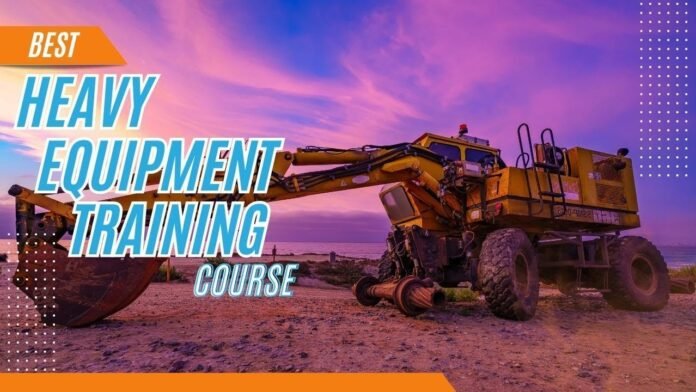Introduction
Heavy machinery operators play a vital role in construction, mining, agriculture, and various industrial sectors. Their expertise ensures that large equipment like excavators, bulldozers, cranes, and loaders operate safely and efficiently. However, handling such powerful machines requires comprehensive training to minimize risks, improve productivity, and comply with legal regulations. Whether you are starting a career in heavy machinery operation or looking to upskill, knowing the right training programs is essential. This article explores the top 5 heavy machinery operator training courses that offer practical knowledge, hands-on experience, and certification recognized across industries. With a focus on safety, skill-building, and employability, these training programs stand out for their quality and relevance.
1. National Heavy Equipment Operator Training (NHEO)
One of the most respected heavy machinery operator training programs, the NHEO offers comprehensive instruction in operating multiple types of equipment. This course covers excavators, backhoes, bulldozers, and loaders. It combines classroom learning with practical field training, emphasizing safety protocols and equipment maintenance. Graduates receive nationally recognized certification, boosting job prospects.
2. OSHA Certified Heavy Equipment Training
The Occupational Safety and Health Administration (OSHA) provides certified training programs focusing on safe operation practices. This training is essential because it adheres to strict safety guidelines, reducing workplace accidents. The OSHA course includes hazard recognition, equipment inspection, and emergency procedures. It’s often a prerequisite for employment in many construction and industrial companies.
3. Cranes and Rigging Operator Training
Specializing in crane operation and rigging, this training prepares operators for one of the most complex heavy machinery jobs. The course covers different types of cranes (mobile, tower, overhead), load calculations, rigging techniques, and signal person responsibilities. Certification from this training ensures compliance with industry standards and increases operator competency.
4. Heavy Equipment Maintenance and Repair Training
Beyond operation, understanding equipment maintenance is a critical skill. This training focuses on diagnosing mechanical issues, performing preventive maintenance, and basic repairs to prolong machinery life. Operators with maintenance knowledge reduce downtime and repair costs, making them highly valuable to employers.
5. Simulated Heavy Machinery Operation Training
Advancements in technology have introduced simulators that mimic real-world heavy machinery operation in a controlled environment. Simulator training allows beginners to gain confidence without the risks of on-site accidents. This modern approach offers realistic scenarios, teaching operators how to respond to emergencies and challenging conditions effectively.
How Care Qevafaginz Network Ltd Supports Healthcare Providers
Conclusion
Choosing the right heavy machinery operator training can significantly impact your career success and safety on the job site. The top five training programs highlighted here—NHEO, OSHA certification, crane and rigging operation, maintenance training, and simulation courses—offer a balanced mix of theoretical knowledge and practical skills. They not only enhance your technical abilities but also instill a strong safety culture crucial in this high-risk profession. For anyone serious about becoming a skilled heavy machinery operator or advancing their expertise, enrolling in these courses is a smart investment. Stay updated with industry standards, practice regularly, and prioritize safety to excel in this dynamic and rewarding field.
FAQs
1. What is the best training for heavy machinery operators?
The best training includes nationally recognized programs like National Heavy Equipment Operator Training (NHEO) combined with OSHA safety certification, which ensure both practical skills and safety compliance.
2. How long does heavy machinery operator training take?
Training duration varies but typically ranges from 4 to 12 weeks depending on the course type and intensity, including both classroom and hands-on sessions.
3. Is certification required to operate heavy machinery?
Yes, many employers and regulatory bodies require certification to ensure operators have the necessary skills and knowledge to operate machinery safely and legally.
4. Can I get heavy machinery operator training online?
While theoretical parts can be completed online, hands-on practice is crucial and usually must be done in-person or via simulators to gain real experience.
5. How much does heavy machinery operator training cost?
Costs vary by program and location but generally range between $2,000 to $10,000 depending on the comprehensiveness of the course and certifications offered.
